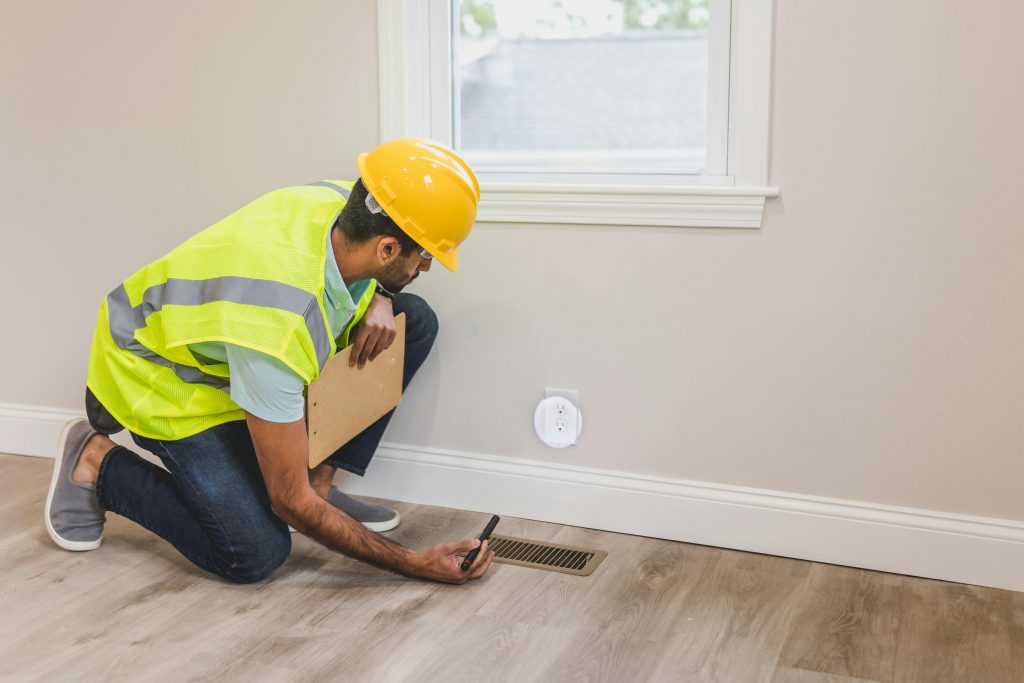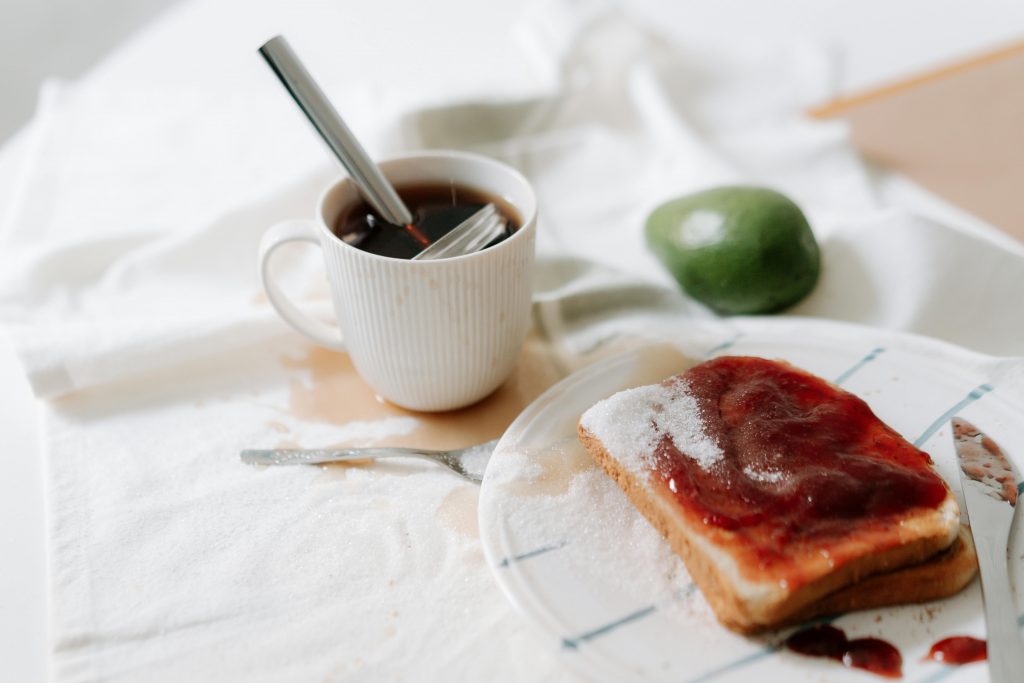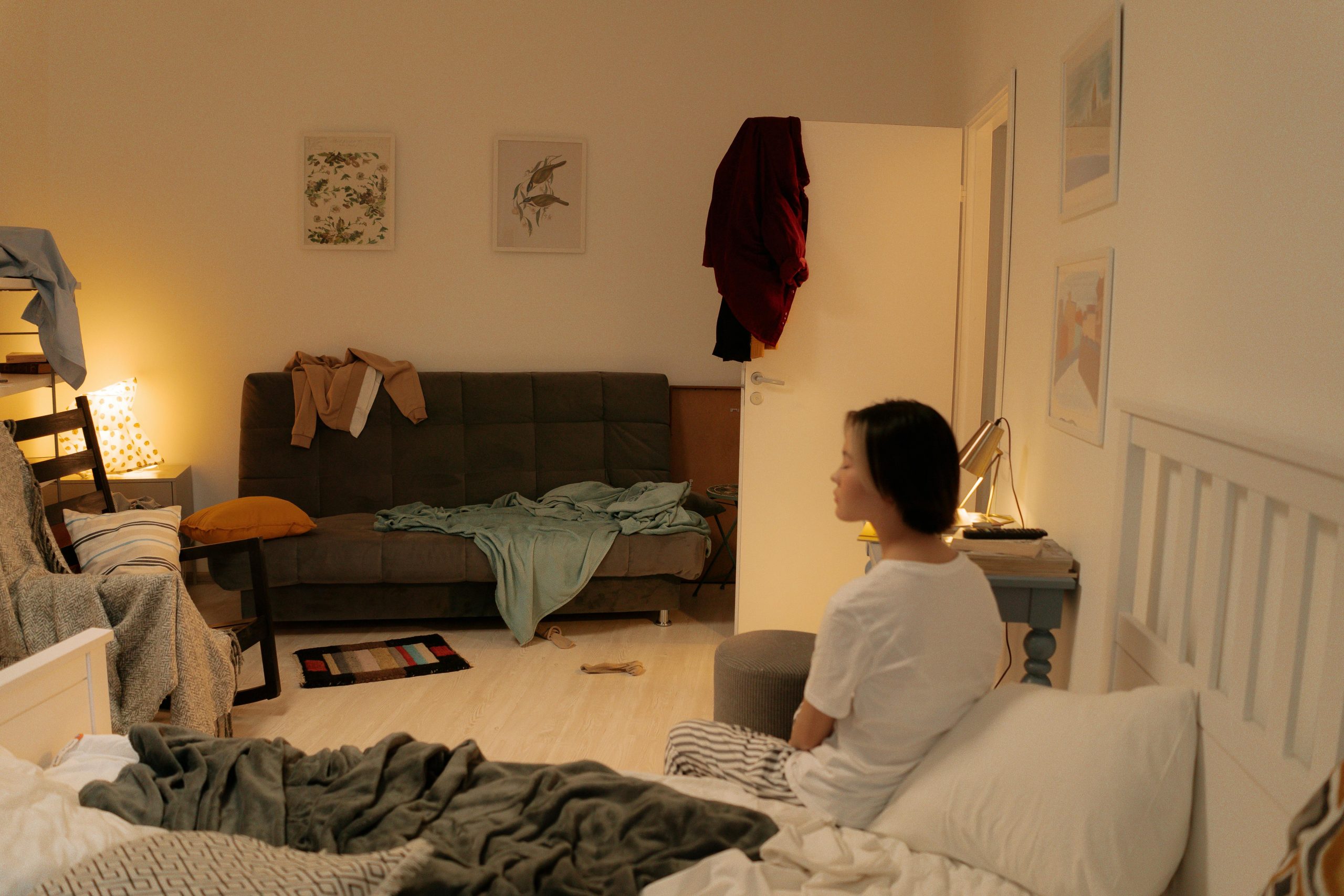If you’ve noticed an unpleasant smell in your room, you’re not alone. Whether it’s a musty, moldy, or stale odor, there are a variety of reasons why your room may not smell as fresh as it should. From poor air circulation to unaddressed spills, many factors can contribute to lingering smells in your living space. Understanding why your room smells and how to tackle these issues is essential for maintaining a clean and comfortable home environment.
In this article, we will explore the common causes of room odors and provide practical solutions to freshen up your space. By understanding the root causes of bad smells, you can take the necessary steps to eliminate them and keep your room smelling pleasant. Whether it’s improving air circulation, cleaning up food and beverage spills promptly, or using air fresheners and candles to mask odors temporarily, we’ll cover a variety of strategies that can help you learn how to make your room smell good and maintain a fresh atmosphere.
1. Poor Ventilation

Poor ventilation is a significant contributor to unpleasant smells in your room. When a space lacks proper airflow, the air becomes stagnant, leading to musty or stale odors. This is particularly common in rooms with no windows, basements, or bathrooms where the moisture levels tend to be higher. Without enough ventilation, odors from cooking, pets, or mold can become trapped, making the room feel heavy, stuffy, and unpleasant. When the air isn’t circulating, it can also cause moisture to linger, further contributing to the growth of bacteria, mold, or mildew, which can all lead to more odors.
How to fix it:
The easiest way to combat poor ventilation is to increase airflow in your room. If possible, open your windows regularly to allow fresh air to enter and help push out stale air. If your room doesn’t have windows or limited airflow, investing in an air purifier can be a game-changer. Air purifiers help circulate the air, remove dust, and reduce the buildup of allergens or odors. You can also use a fan to promote airflow, which will keep the air moving and help reduce the feeling of stuffiness. For rooms prone to excess moisture, such as basements or bathrooms, using a dehumidifier can help eliminate the humidity in the air. This not only helps improve ventilation but also prevents mold and mildew from taking root, ensuring that your room stays fresher and more comfortable.
2. Mold and Mildew
Mold and mildew are two of the most notorious causes of unpleasant smells in any room. They thrive in damp, warm environments, making areas like basements, bathrooms, or rooms with poor ventilation prime locations for mold growth. If you notice a musty smell, it’s a strong indicator that you might have mold or mildew lurking in your space. Mold can also trigger allergic reactions and respiratory issues, so it’s important to address the problem as soon as possible.
How to fix it:
To get rid of mold and mildew, you’ll first need to find the source of the moisture. Check for any leaks in the walls, ceiling, or around windows. Once you’ve identified the source, fix the leak and allow the area to dry completely. Clean any visible mold using a mixture of water and vinegar or a store-bought mold remover. For stubborn mold, you might need to call a professional. To prevent future mold growth, consider using a dehumidifier in damp areas to keep moisture levels under control.
3. Dirty Carpets and Rugs
Carpets and rugs are notorious for trapping dirt, dust, pet hair, and even food crumbs. Over time, these particles can contribute to unpleasant odors. If your carpet or rug hasn’t been cleaned in a while, it might be time to give it a deep clean. Odors from spills, pet accidents, or general dirt buildup can seep into the fibers and cause your room to smell musty or dirty.
How to fix it:
Vacuum your carpets regularly to remove dirt, dust, and pet hair that can cause odors. For deep cleaning, consider using a carpet shampooer or hiring a professional carpet cleaning service to remove stains and trapped odors. You can also sprinkle baking soda on your carpet before vacuuming to neutralize odors. If the smell persists, it could be a sign that mold or mildew is present in the carpet, which will require more thorough cleaning or replacement.
4. Uncleaned Bedding and Upholstery
Dirty bedding and upholstery can also contribute to a foul-smelling room. Bedding absorbs sweat, oils from your skin, and body odors, while upholstered furniture can trap pet dander, dust, and other particles. If your sheets, blankets, pillows, or furniture haven’t been cleaned recently, they may be releasing unpleasant smells into your room.
How to fix it:
Wash your bedding regularly, at least once a week, to keep it fresh and free from odors. Be sure to clean pillows, blankets, and comforters, as they can also trap smells over time. If you have upholstered furniture, vacuum it regularly to remove dirt and dust. You can also use fabric fresheners or essential oils to add a pleasant scent to your furniture and bedding. For stubborn smells in upholstery, a professional cleaning may be necessary.
5. Food and Beverage Spills

Spills from food and drinks are some of the most common culprits when it comes to unwanted odors in your room. Whether it’s a forgotten coffee stain on the carpet, crumbs scattered across your bed, or soda spilled on your desk, these seemingly minor accidents can have a big impact on the air quality in your space. When not cleaned promptly, food and drink spills can seep deep into carpets, upholstery, and other surfaces, leaving behind persistent smells that are difficult to eliminate. Even a small spill, if not addressed quickly, can start to attract dust and dirt, which worsens the odor over time.
How to fix it:
The key to preventing lingering odors from food and beverage spills is to clean them up immediately. When a spill occurs, grab a cloth or some paper towels to blot up the liquid—avoid rubbing, as this can push the liquid deeper into the fabric or carpet fibers. For wet stains, gently press down on the affected area to absorb as much liquid as possible. Afterward, wash the area with soap and water to remove any residue. If a spill has left behind a stubborn stain, consider using a mild detergent, upholstery cleaner, or a carpet stain remover suitable for the material. Additionally, it’s important to regularly vacuum or wipe down your room, especially in areas where food and drinks are consumed, like the desk or bed. This will help ensure there are no leftover crumbs, spills, or other food particles that can create lingering smells. Regular cleaning will not only keep your room smelling fresh but also prevent future buildup of unwanted odors.
6. Pet Odors
If you have pets, their odor can be another reason why your room smells. Pet hair, dander, and urine can contribute to an unpleasant smell in your room, especially if they are not regularly cleaned up. Even pets that are litter box trained or kept outside can sometimes leave odors behind, particularly if they have accidents indoors.
How to fix it:
Regularly clean your pet’s bedding, toys, and any areas where they spend time. Vacuum your carpets, rugs, and upholstery frequently to remove pet hair and dander. If your pet has an accident, clean it up immediately with an enzyme-based cleaner to eliminate the odor. Consider using an air purifier designed to filter out pet dander or adding a few drops of essential oils to an air diffuser to mask any lingering smells.
7. Trash and Garbage
One often-overlooked source of unpleasant odors in your room is trash. When trash isn’t disposed of regularly, food scraps, used tissues, or other waste can begin to decompose, releasing strong, foul odors. Even if you keep your trash contained in a bin with a lid, certain types of waste, such as food, can still emit smells over time. It’s easy to forget about the garbage, especially if it’s hidden away in a corner, but allowing trash to sit for too long will result in unwanted smells that can linger in the air and affect the overall freshness of your room. A neglected trash can not only contribute to bad odors but can also attract insects or pests.
How to fix it:
To keep odors from accumulating, make sure to empty your trash can regularly, ideally once a day or every couple of days, depending on the amount of waste you generate. After emptying it, give the trash can a quick wash with soap and water to eliminate any lingering smells or residues that could cause odors. For added protection, ensure your trash cans have tightly sealed lids, especially if you’re dealing with food waste or anything that can create strong smells. If your trash can starts to smell, consider using scented trash bags or placing a deodorizer at the bottom of the bin to keep the air fresh. For food waste, it’s a good idea to use a small, air-tight container that can hold waste until you’re ready to take it out. This will help minimize odors and keep your room smelling cleaner for longer.
8. Clothing and Shoes
Clothing, especially damp or dirty clothes, can be a major contributor to a smelly room. Sweat-soaked gym clothes, socks, and shoes left unattended for too long can create a foul odor that lingers in the air. This is because moisture from sweat or rain gets trapped in fabrics, creating the perfect environment for bacteria to grow, which in turn produces unpleasant smells. Even clean clothes can pick up odors if they are left in piles for too long, as they absorb smells from the surrounding environment. Without proper storage or care, your clothes and shoes can quickly start to affect the air quality in your room.
How to fix it:
To prevent clothing and shoes from creating odors in your room, wash clothes regularly to ensure they stay fresh. It’s important not to leave damp clothes lying around, as this will only amplify the smell. Hang wet clothes up immediately or use a drying rack to allow them to air dry properly. For shoes, store them in a closed space like a shoe rack or box to keep odors contained. If your shoes have developed an unpleasant smell, sprinkle baking soda inside them to absorb the odor and leave them smelling fresher. Also, if your shoes get dirty or sweaty after workouts or outdoor activities, be sure to wash them regularly to avoid buildup of odors. With proper care and storage, your clothing and shoes won’t contribute to unwanted smells in your room.
9. Air Fresheners and Candles
If your room still smells bad despite cleaning, air fresheners and candles can serve as a temporary solution to mask the odor. While they won’t tackle the underlying cause of the smell, they can help create a more pleasant and inviting atmosphere in your space. Air fresheners and candles release scents that can help neutralize unpleasant odors, making your room feel fresher and more enjoyable. This is especially helpful in situations where you may not be able to identify or address the source of the smell right away, such as during a busy day or when you’re expecting guests. However, it’s important to note that these products should not be relied on as a permanent fix but rather as a complementary tool.
How to fix it:
Consider using air fresheners, scented candles, or essential oil diffusers to add pleasant fragrances to your room. Essential oils, like lavender, eucalyptus, or lemon, can not only mask odors but also offer additional benefits, such as promoting relaxation or improving mood. Scented candles with calming scents like vanilla or jasmine can also be a great way to freshen up your room while creating a cozy ambiance. When choosing air fresheners or candles, opt for natural products, as they tend to be less harsh and more eco-friendly than synthetic options. While air fresheners and candles can improve the scent of your room in the short term, always remember to address the root causes of the smell—whether it’s food spills, poor ventilation, or accumulated trash—so that your room can stay fresh for the long haul.
Conclusion
If your room smells, it’s important to identify the underlying cause and take action to resolve it. Whether it’s poor ventilation, mold growth, pet odors, or something as simple as a trash can that needs emptying, understanding why your room smells and knowing how to fix it can create a more pleasant, comfortable living environment. Regular cleaning, proper ventilation, and attention to detail can keep your room smelling fresh and inviting. By eliminating the sources of bad smells, you’ll be able to enjoy a space that feels clean, relaxing, and enjoyable to spend time in.

